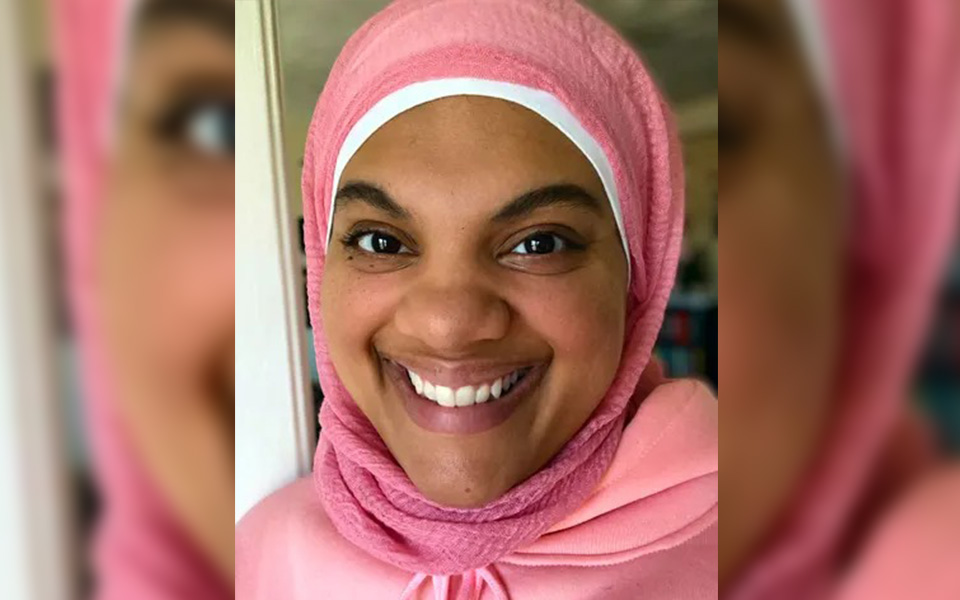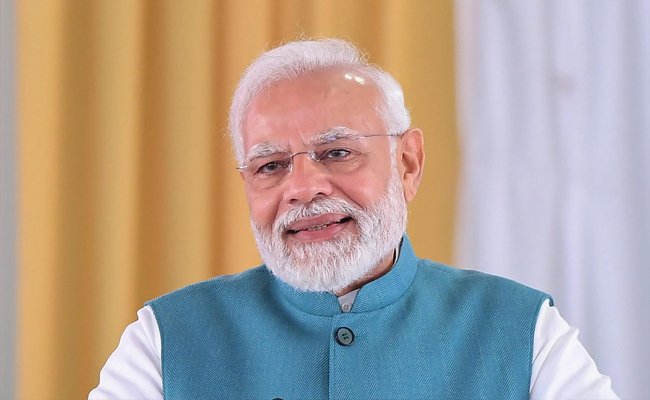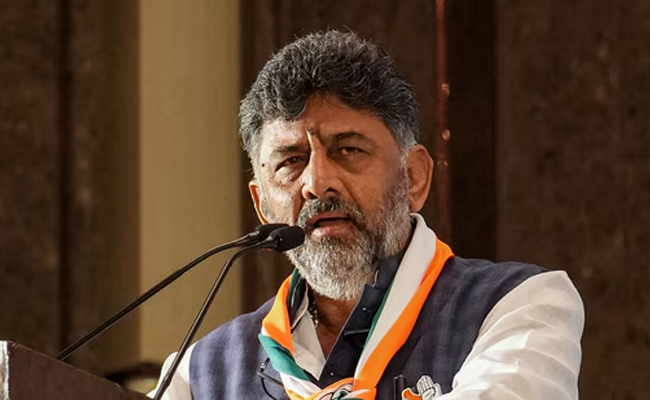Washington: In a trend on TikTok, young Americans are diving into the Quran to better understand Islam and show solidarity with Muslims, particularly those in Gaza, a report by The Guardian has noted. This movement, marked by the hashtag "quranbookclub," has gained traction, with 1.9 million views on the platform.
Megan B Rice, a 34-year-old romance novel enthusiast from Chicago, exemplifies this growing curiosity. Using her TikTok platform, Rice initially spoke out about the humanitarian crisis in Gaza. Intrigued by her Muslim followers' suggestion to read the Quran for a deeper understanding, Rice established a "World Religion Book Club" on Discord. The experience led her to embrace Islam, finding alignment with the text's anti-consumerist, anti-oppressive, and feminist values.
The TikTok movement is not without precedent, as the Quran became a bestseller in the aftermath of 9/11. However, the current wave distinguishes itself by a genuine desire to understand the resilience and faith of Muslim Palestinians, rather than confirming preconceived biases about Islam.
Nefertari Moonn, a 35-year-old from Tampa, Florida, embarked on a similar journey. Initially spiritual but not religious, Moonn delved into the Quran to comprehend what drove people to turn to Allah in times of adversity. The emotional resonance she found led her to take the shahada, becoming a Muslim revert.
The movement extends beyond TikTok, with Misha Euceph, a Pakistani American writer and podcast host, running a Quran Book Club on Instagram since 2020. Euceph highlights how certain Quranic themes resonate with the values of young, left-leaning Americans, emphasizing environmentalism and anti-consumerism.
The Quran's stance on gender equality also appeals to many readers. In the eyes of God, men and women are equals, aligning with feminist principles for converts like Rice. Additionally, the Quran's engagement with scientific explanations for creation, including references to the big bang, challenges the perceived conflict between religion and science.
Sylvia Chan-Malik, an associate professor at Rutgers University, draws parallels between the current TikTok trend and her own experience post-9/11. Having converted to Islam during that period, Chan-Malik notes the vast disconnect between popular perceptions of Islam and the reality she discovered through personal interactions.
Zareena Grewal, an associate professor at Yale, observes that individuals often approach religious texts with the intent to confirm existing worldviews. In the case of TikTokers, they seek progressive messages within the Quran, recognizing the complexity and multiple interpretations of religious scriptures.
For Rice, who rejected Islamophobia and discrimination against Muslim Americans, reading the Quran became a way to empathize with Palestinians in Gaza. The experience challenged her internalized misconceptions about Islam, leading to a profound transformation.
The TikTok trend of exploring the Quran reflects a genuine desire among young Americans to understand and connect with Islam, driven by empathy and a quest for truth, as Rice aptly puts it in The Guardian’s report, learning about the most intimate aspects of someone, including their faith, fosters empathy irrespective of one's religious background.
Let the Truth be known. If you read VB and like VB, please be a VB Supporter and Help us deliver the Truth to one and all.
Dharamsala (PTI): The countdown to save his place in the playing XI begins for a beleaguered Shubman Gill, who is likely to get three matches against South Africa to prove his worth before the Indian team management switches to a ‘Plan B’ ahead of the T20 World Cup, starting in six weeks.
As India gear up to play the third T20I against the Proteas on Sunday in sub-10-degree temperatures in the lap of the ice-clad Dhauladhar range, things are suddenly heating up in the Indian dressing room, with the prolonged poor form of skipper Suryakumar Yadav coming under the scanner.
ALSO READ: South Africa level series after de Kock special; Gill, SKY misfire again
Worse, his deputy Shubman Gill, who was pushed into the XI at the expense of a settled Sanju Samson, is not inspiring much confidence.
The South African pace attack featuring Anrich Nortje, Marco Jansen, Lungi Ngidi, Ottniel Baartman and Lutho Sipamla — has shown how to bowl on Indian tracks, and the HPCA Stadium strip, offering extra bounce and some movement off the surface, will certainly keep them interested.
ALSO READ: Messi mania grips Kolkata as thousands welcome Argentine icon at 2.26 am
Among all T20 sides, South Africa, in terms of personnel, appears to have the requisite balance to win the trophy in the Indian subcontinent this time. Quinton de Kock’s return, along with the likes of Aiden Markram, Dewald Brevis, Donovan Ferreira, David Miller and all-rounder Jansen, gives their batting an intimidating look.
With only eight games, starting from the third T20I, left before the start of the T20 World Cup title defence, India's under-fire head coach Gautam Gambhir won't be able to afford, two out-of-form top-order batters in the starting line-up.
Being the skipper of the side, Surya will certainly have immunity going into the T20 World Cup despite being completely out of form for the past one year but same can't be said about Gill, who wasn't the original choice as an opener.
Gill's entry into the T20 set-up was a classic case of trying to fix something that ain't broken and things haven't looked good so far.
In this backdrop, Gill would need to bat out of his skin to prove that Ajit Agarkar-led committee wasn't wrong in throwing Samson under the bus for one bad series against England.
The stylish Indian Test and ODI skipper will have to find his T20 game and at least score in two of the three matches if he doesn't want Samson to get his rightful place back or for that matter, find Yashasvi Jaiswal, with a fabulous T20I strike-rate of 165, enter the fray during New Zealand series.
Lack of clarity
==========
While head coach Gambhir is too proud a person to admit but sending Axar Patel as a one drop batter during the second T20I was a "tactical brain fade" from the team's think-tank.
The kind misstep that was taken with Axar's promotion is unlikely to be repeated in the third game where skipper is expected to go back to No.3 where he has got a lot of success in his first few years at the international level.
Similarly, Shivam Dube being sent at number eight due to the shuffling of batting order was another poor call which would need course correction in the next game.
Is there a place for Kuldeep Yadav?
=========================
Kuldeep Yadav is one bowler who has consistently troubled the Proteas batter but in an Indian team where batting till No. 8 is non-negotiable, the left-arm wrist spinner often finds himself getting the rough end of the stick.
At Dharamsala too, he might have to sit out as Kuldeep and Varun Chakravarthy, two non-batters can't be clubbed in the same T20 playing eleven as that would lead to compromise in batting depth.
While Arshdeep hasn't had a good series so far, it will be interesting to find if team management can find a place for Kuldeep in the playing eleven with Hardik Pandya sharing the new ball with Jasprit Bumrah.
The five-match series is currently tied 1-1.
Teams:
India: Suryakumar Yadav (captain), Shubman Gill, Abhishek Sharma, NT Tilak Verma, Axar Patel, Hardik Pandya, Shivam Dube, Jitesh Sharma (wk), Varun Chakravarthy, Arshdeep Singh, Jasprit Bumrah, Sanju Samson (wk), Harshit Rana, Kuldeep Yadav, Washington Sundar.
South Africa: Aiden Markram (captain), Quinton de Kock, Reeza Hendricks, Dewald Brevis, David Miller, Tristan Stubbs, Donovan Ferreira, Marco Jansen, Lutho Sipamla, Ottniel Baartman, Anrich Nortje, Lungi Ngidi, Corbin Bosch, Keshav Maharaj, George Linde.
Match Starts at 7 pm.





